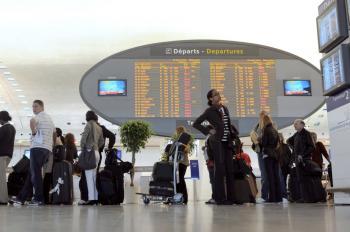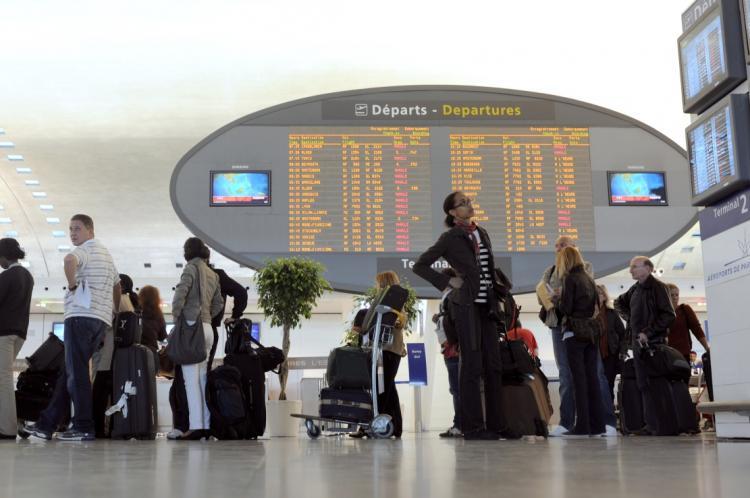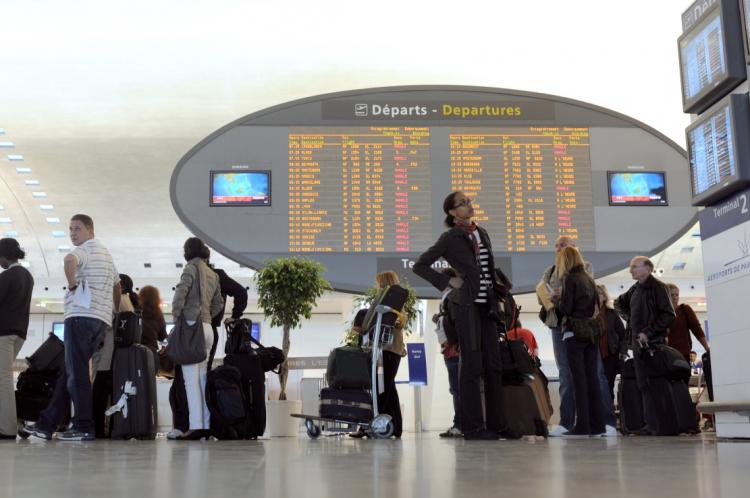The Icelandic volcanic eruption last month grounded 100,000 flights, causing an estimated loss of more than $1.7 billion for the airline industry, according to The International Air Transport Association (IATA).
All eyes of have been watching the activity of the Eyjafjallajökull volcanic eruption, which has grounded European airlines to their knees. Over six days last month, ash clouds formed over Europe from the volcanic dust that covered European air space with an abrasive, silica-based substance, which could congest engines and damage windscreens.
Latest reports have announced that the volcanic activity in Iceland has subsided, the University of Iceland’s Institute of Earth Sciences said on its website in a joint statement with the Icelandic MET Office. It seems that the lava flow has ceased, with no reports of new ashfall, according to the Icelandic MET office.
At the peak of the flight disruptions, the IATA said that lost revenues reached $400 million per day over a three-day period from April 17-19.
“Lost revenues now total more than $1.7 billion for airlines alone. At the worst, the crisis impacted 29 percent of global aviation and affected 1.2 million passengers a day. The scale of the crisis eclipsed 9/11 when U.S. airspace was closed for three days,” said Giovanni Bisignani, IATA’s director general and CEO, in a statement.
Bisignani highlighted the gains that offset the stranded flights during the volcano’s disruption, emphasizing that the cost of fuel consumption savings of $110 million per day partially subsidized the losses. This does not seem to outweigh the overall loss to the airline industry, because as “[they] lost $9.4 billion last year and were forecast to lose a further $2.8 billion in 2010, this crisis is devastating. It is hitting hardest where the carriers are in the most difficult financial situation. Europe’s carriers were already expected to lose $2.2 billion this year—the largest in the industry,” said Bisignani.
Although the U.K. seemed vulnerable last week with ash clouds stranding flights, measures have been put in place to set a benchmark for best business practices. “Airport partners are setting industry best practices. London Heathrow and Dubai are waiving parking fees and not charging for repositioning flights. Others airports must follow,” said Bisignani.
Iceland, which has around 30 volcanoes, also has an excess of 600 hot springs, geographically located between tectonic plates on the mid-Atlantic ridge, making it one of the most geologically active places in the world.
All eyes of have been watching the activity of the Eyjafjallajökull volcanic eruption, which has grounded European airlines to their knees. Over six days last month, ash clouds formed over Europe from the volcanic dust that covered European air space with an abrasive, silica-based substance, which could congest engines and damage windscreens.
Latest reports have announced that the volcanic activity in Iceland has subsided, the University of Iceland’s Institute of Earth Sciences said on its website in a joint statement with the Icelandic MET Office. It seems that the lava flow has ceased, with no reports of new ashfall, according to the Icelandic MET office.
At the peak of the flight disruptions, the IATA said that lost revenues reached $400 million per day over a three-day period from April 17-19.
“Lost revenues now total more than $1.7 billion for airlines alone. At the worst, the crisis impacted 29 percent of global aviation and affected 1.2 million passengers a day. The scale of the crisis eclipsed 9/11 when U.S. airspace was closed for three days,” said Giovanni Bisignani, IATA’s director general and CEO, in a statement.
Bisignani highlighted the gains that offset the stranded flights during the volcano’s disruption, emphasizing that the cost of fuel consumption savings of $110 million per day partially subsidized the losses. This does not seem to outweigh the overall loss to the airline industry, because as “[they] lost $9.4 billion last year and were forecast to lose a further $2.8 billion in 2010, this crisis is devastating. It is hitting hardest where the carriers are in the most difficult financial situation. Europe’s carriers were already expected to lose $2.2 billion this year—the largest in the industry,” said Bisignani.
Although the U.K. seemed vulnerable last week with ash clouds stranding flights, measures have been put in place to set a benchmark for best business practices. “Airport partners are setting industry best practices. London Heathrow and Dubai are waiving parking fees and not charging for repositioning flights. Others airports must follow,” said Bisignani.
Iceland, which has around 30 volcanoes, also has an excess of 600 hot springs, geographically located between tectonic plates on the mid-Atlantic ridge, making it one of the most geologically active places in the world.





